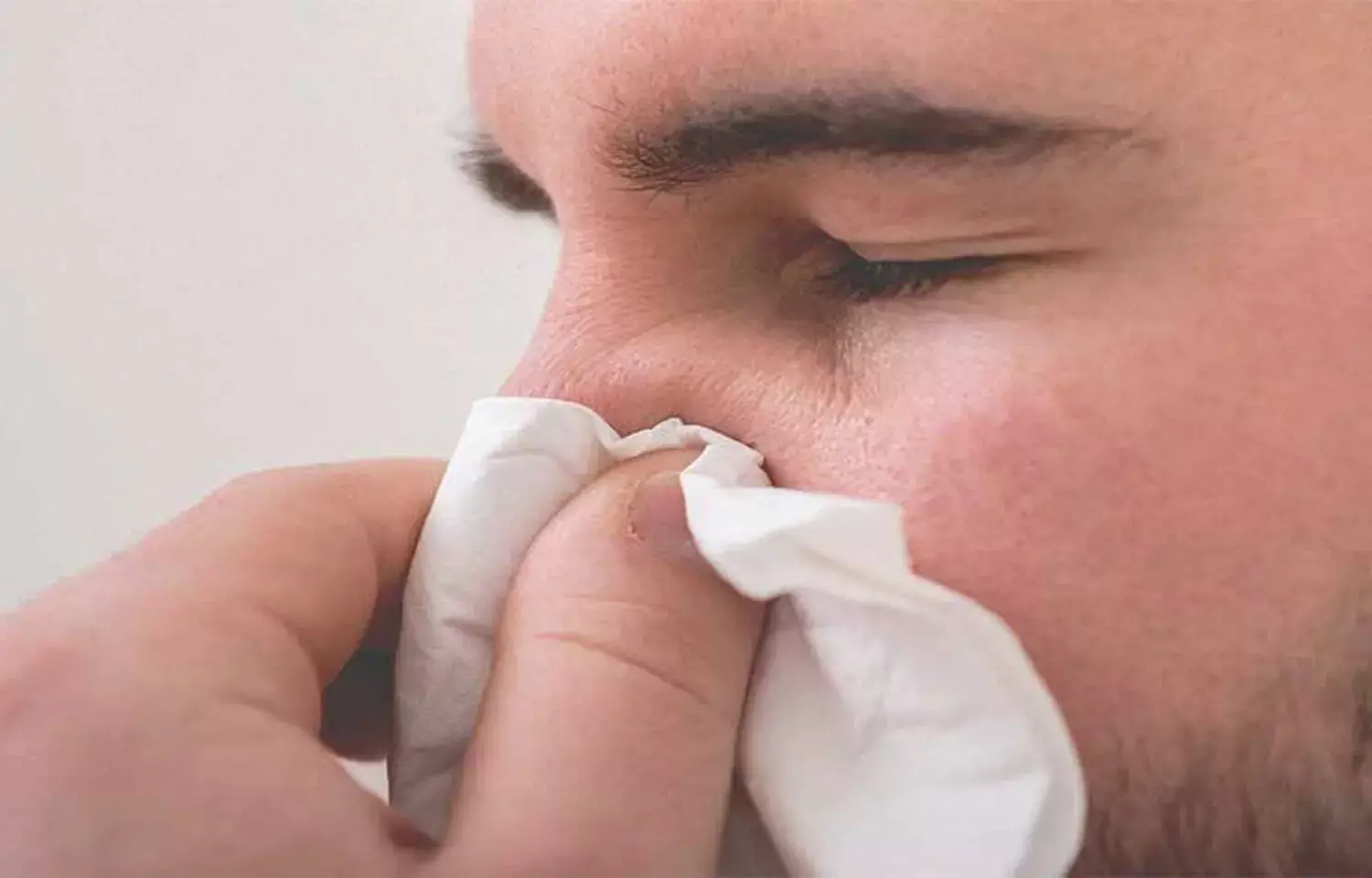- Home
- Medical news & Guidelines
- Anesthesiology
- Cardiology and CTVS
- Critical Care
- Dentistry
- Dermatology
- Diabetes and Endocrinology
- ENT
- Gastroenterology
- Medicine
- Nephrology
- Neurology
- Obstretics-Gynaecology
- Oncology
- Ophthalmology
- Orthopaedics
- Pediatrics-Neonatology
- Psychiatry
- Pulmonology
- Radiology
- Surgery
- Urology
- Laboratory Medicine
- Diet
- Nursing
- Paramedical
- Physiotherapy
- Health news
- Fact Check
- Bone Health Fact Check
- Brain Health Fact Check
- Cancer Related Fact Check
- Child Care Fact Check
- Dental and oral health fact check
- Diabetes and metabolic health fact check
- Diet and Nutrition Fact Check
- Eye and ENT Care Fact Check
- Fitness fact check
- Gut health fact check
- Heart health fact check
- Kidney health fact check
- Medical education fact check
- Men's health fact check
- Respiratory fact check
- Skin and hair care fact check
- Vaccine and Immunization fact check
- Women's health fact check
- AYUSH
- State News
- Andaman and Nicobar Islands
- Andhra Pradesh
- Arunachal Pradesh
- Assam
- Bihar
- Chandigarh
- Chattisgarh
- Dadra and Nagar Haveli
- Daman and Diu
- Delhi
- Goa
- Gujarat
- Haryana
- Himachal Pradesh
- Jammu & Kashmir
- Jharkhand
- Karnataka
- Kerala
- Ladakh
- Lakshadweep
- Madhya Pradesh
- Maharashtra
- Manipur
- Meghalaya
- Mizoram
- Nagaland
- Odisha
- Puducherry
- Punjab
- Rajasthan
- Sikkim
- Tamil Nadu
- Telangana
- Tripura
- Uttar Pradesh
- Uttrakhand
- West Bengal
- Medical Education
- Industry
Doxycycline benefits in Recurrent Epistaxis in Hereditary hemorrhagic telangiectasia

Doxycycline benefits Recurrent Epistaxis in Hereditary hemorrhagic telangiectasia suggests a new study. However possible benefits of doxycycline should be interpreted with caution given the overall negative study, says an article published in the Journal of Thrombosis and Hemostasis.
Hereditary hemorrhagic telangiectasia (HHT) is a vascular bleeding illness with visceral arteriovenous malformations and mucocutaneous telangiectasias. Spontaneous recurrent epistaxis is an often debilitating condition. As a result, Justin P. McWilliams and colleagues did this research. A prospective, randomized, placebo-controlled crossover research design was used to determine if doxycycline medication improves epistaxis in HHT.
Between December 2017 and July 2020, twenty-two eligible patients were assigned to one of two trial arms: doxycycline therapy followed by placebo, or vice versa. The primary outcomes compared the severity of epistaxis between treatments. Secondary objectives were changes in quality of life, laboratory indicators of bleeding, and the total amount of monthly blood transfusions or iron infusions. Post-hoc outcomes included the frequency and duration of dripping and gushing epistaxis. A post-hoc longitudinal study looked at the effects of doxycycline over time.
The results of this study stated as follow:
1. Doxycycline was well tolerated and safe. The three key outcome measures, nosebleed frequency (p =.16), nosebleed duration (p =.05), and Epistaxis Severity Score (p =.19), did not change.
2. The groups did not vary in terms of quality of life, hemoglobin level, or the frequency of blood transfusions and iron infusions.
3. Post hoc analysis revealed that doxycycline reduced leakage (p =.02), while the therapeutic relevance of this finding is unknown.
4. Post hoc longitudinal analysis revealed a decrease in epistaxis frequency (mean estimate of coefficient = 0.19, standard error = 0.07, p =.01) and duration (mean estimate of coefficient = 2.33, standard error = 1.08, p =.03) with time.
In conclusion, the study reveals that doxycycline is safe and useful for relieving epistaxis in HHT patients; nevertheless, the study is generally negative, and these findings should be regarded with care. More research with a bigger sample size and a longer treatment duration is required.
Reference:
McWilliams, JP, Majumdar, S, Kim, GH, et al. North American Study for the Treatment of Recurrent Epistaxis with Doxycycline: The NOSTRIL trial. J Thromb Haemost. 2022; 00: 1– 11. doi:10.1111/jth.15662
Medical Dialogues consists of a team of passionate medical/scientific writers, led by doctors and healthcare researchers. Our team efforts to bring you updated and timely news about the important happenings of the medical and healthcare sector. Our editorial team can be reached at editorial@medicaldialogues.in.
Dr Kamal Kant Kohli-MBBS, DTCD- a chest specialist with more than 30 years of practice and a flair for writing clinical articles, Dr Kamal Kant Kohli joined Medical Dialogues as a Chief Editor of Medical News. Besides writing articles, as an editor, he proofreads and verifies all the medical content published on Medical Dialogues including those coming from journals, studies,medical conferences,guidelines etc. Email: drkohli@medicaldialogues.in. Contact no. 011-43720751


